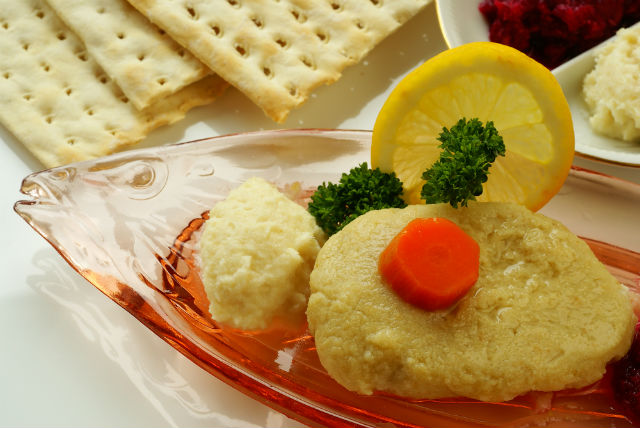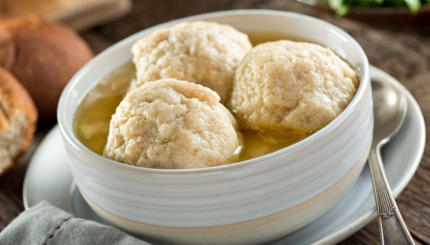Question: I’ve been told that it’s not
to eat or cook fish with meat. Why not?
–Margaret, Florida
Answer: It’s always tricky answering “why” questions about kashrut, (Jewish dietary laws). The commandments in the were divided into two groups by some rabbis, mishpatim, and hukkim. Mishpatim are the reasonable and self-evident laws, such as the prohibitions against murder and adultery. Hukkim represent those commandments impenetrable to reason. In theory, we do them simply because we’re told to, not because they make empirical sense to us. is the quintessential example of one of the hukkim–it simply does not make sense.
So, for many people, the answer to most “why” questions that concern kashrut is simply that we don’t know. But the prohibition against eating fish and meat has an interesting history.

Help us keep Jewish knowledge accessible to millions of people around the world.
Your donation to My Jewish Learning fuels endless journeys of Jewish discovery. With your help, My Jewish Learning can continue to provide nonstop opportunities for learning, connection and growth.
There is nothing in the Torah that prohibits eating fish and meat together. In the , in Pesachim 76b, the rabbis say that fish should not be roasted or cooked together with meat, arguing that mixing the flavors causes bad breath and leprosy. The first place in rabbinic literature where we see an outright prohibition against eating fish and meat together is in the Shulchan Aruch, where Rabbi Joseph Caro writes that one must abstain from doing so because that combination causes a danger to one’s health (Yoreh Deah 116:2-3).
What kind of danger? Caro implied that fish and meat cooked together could lead to a person contracting tzaraat, a biblical skin disease commonly translated as leprosy, though distinct from the disease we call leprosy today (some scholars believe Caro is merely worried that fish and meat will exacerbate the problems of one who already has tzaraat). Caro is clear that the mandated separation between meat and fish is made out of concern for medical risk, not because the combination is explicitly prohibited by the Torah.
As a result of this ruling in the Shulchan Aruch, halacha (Jewish law) prohibits cooking fish and meat together, or serving them together in one dish. However, the distinction between fish and meat is significantly different from the distinction between milk and meat. Kosher kitchens generally have separate sets of dishes and utensils for dairy and meat, but fish does not require these same extreme measures.
As long as a pot is clean, and no longer has pieces of meat in it, there’s no problem with cooking a piece of fish in a pot previously used to for a roast. The one stringency that you may come across in kosher homes is a separate plate and utensils for the fish course. Often, fish is served as an appetizer, and plates and forks are collected before the meal progresses to ensure that no fish and meat are eaten together.
Unlike with meat and dairy, there’s no requirement to wait a set length of time between meat and fish. Some rabbinic authorities require the washing of hands, and others mandate a drink of water, or a piece of bread to cleanse the palate between the two courses, but there’s no need to wait several hours between salmon and steak.
You may be wondering if there’s really anything dangerous about eating meat with fish. Was Rabbi Caro onto something, or is his ruling no longer relevant?
In Orthodox communities, the separation between meat and fish is generally still upheld, under the logic that the standards for safety made by Rabbi Caro have not changed. However, the Conservative Movement’s Committee on Jewish Law and Standards has overturned the prohibition against cooking and eating meat and fish together. This reversal is based on the idea that the prohibition originally came from a specific desire to avoid getting tzaraat. Because tzaraat is not a problem in our times, it’s no longer necessary to go to great length to avoid catching it.
If you’re worried about what the standards are in your community, it’s always a good idea to ask your rabbi.



